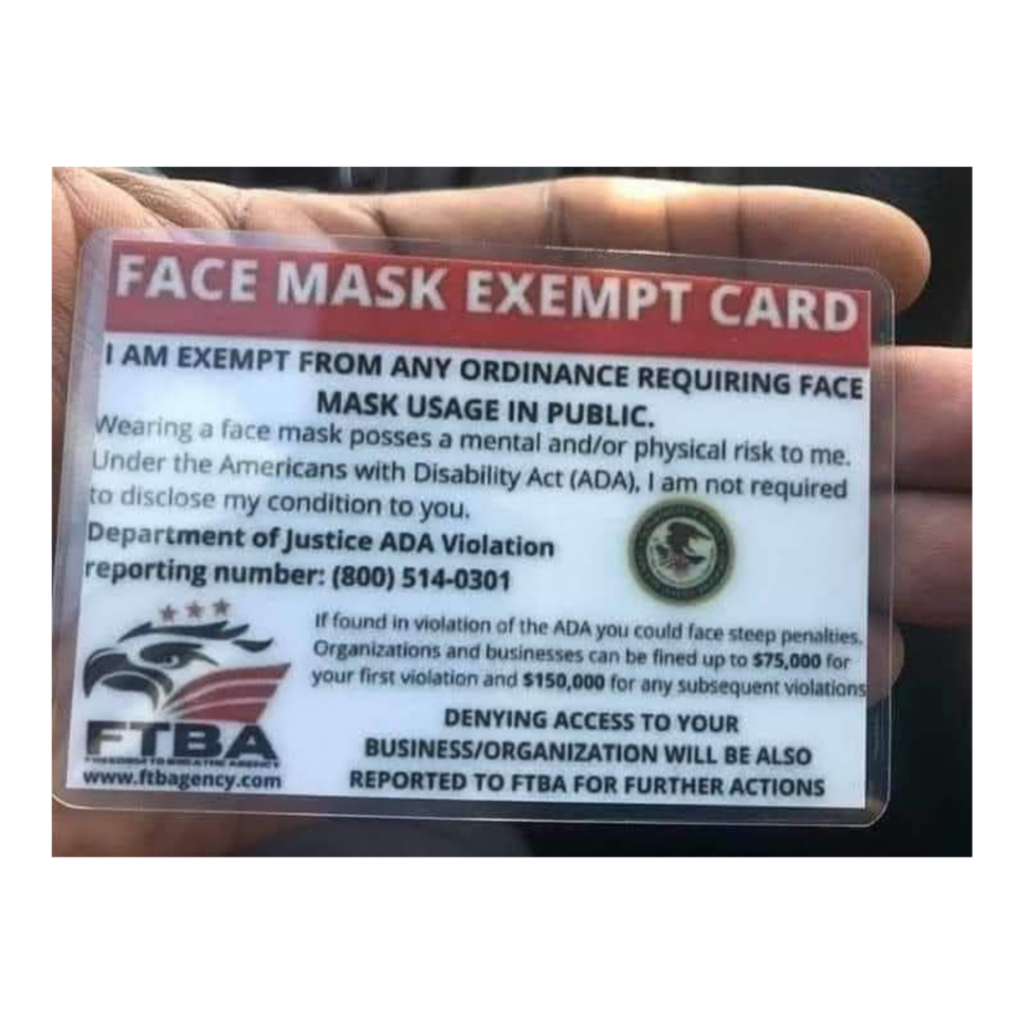If Mad Men taught us anything, it’s that corporate America has come a long way since the 1960’s with regard to its treatment of alcohol in the workplace. Some viewers of the show may envy that previous generation’s celebration of the drinking life, where, if the show is to be believed, the martinis flowed throughout the workday like water, lunch wasn’t complete without a couple cocktails, and every executive had a bar in his or her office, replenished on the company dime. But one character in particular – Freddy Rumsen – exemplified the sad manner in which alcohol can sink a good worker’s promise and productivity, and also how effective treatment of alcoholism can turn that same worker into a more productive and happier employee than ever.
Freddy Rumsen and the Pre-ADA Era
For those of you who can’t keep your Freddy Rumsens straight from your Paul Kinseys – or heaven forbid, you never made it through Mad Men in the first place – Freddy Rumsen was a senior copywriter with a drinking problem that was even more noticeable than the rest of his colleagues. After urinating on himself and drunkenly passing out before a big sales meeting, Freddy was put on a leave of absence (he had been with the firm since its earliest days). A year later, he returned to the firm a new man, reinvigorated by his time in AA, bringing business and talent back to the company, and eventually becoming a close confidante to Don Draper, who he urged to stop drinking.
While Freddy may have avoided being fired based on his tenure and connections, in the old days habitual drunkenness leading to poor work performance would likely have earned a worker a pink slip without a second thought. Or perhaps the behavior would simply have been tolerated. But it is unlikely that an employee’s drinking would have been considered a disability requiring or even deserving of any kind of accommodations on the part of the employer. It is only in recent decades that society has begun to accept the finding of medical researchers that alcoholism is not a moral failing but more accurately classified as a disease, often genetic in nature, and which generally requires recovery and potentially in-patient or out-patient treatment.
Which brings us to our questions:
- What are the costs of excessive alcohol use in the workplace?
- Is alcoholism considered a disability?
- If so, do alcoholics require special accommodations under the ADA?
- Can an employee be fired for misconduct related to their alcoholism?
- What are my legal obligations when a person self-identifies as an alcoholic?
The High Cost of Excessive Alcohol Use on the US Economy
Alcohol is celebrated in billboards, magazine ads, TV commercials, movies…just about everywhere. All those ads are working, and one of the downsides is that excessive alcohol use costs the American economy around a quarter trillion (trillion with a “tr”) dollars a year, according to the CDC, much of which comes from reduced productivity in the workplace from employees. Note that U.S. alcohol sales in total for a given year are around $350 million a year, which means that, for every $7 the alcohol industry takes in, the economy loses about $5.
And where is that $5 lost? Much of it may be in your workplace, as hungover employees fail to get proper rest or have the brain function, energy, or drive to do their work at a proper level. Although many workers hide the effects of alcohol, or may suffer from reduced productivity due to alcohol only occasionally, other workers may routinely be working at less than their capability. As statistics indicate 1 in 7 Americans suffer from a serious alcohol problem, it’s quite likely that your business’s bottom line is being affected by alcohol.
Is Alcoholism a Disability Under the ADA?
The American with Disabilities Act of 1990 (ADA) prohibits private and public employers with 15 or more employees from discriminating against “qualified employees” with “disabilities” in hiring, firing, and other employment-related decisions. An individual with a disability is one who “has a physical or mental impairment that substantially limits one or more major life activities” or is perceived or regarded as such. A qualified employee is an employee who can perform the essential functions of the job with or without a reasonable accommodation by the employer (more on what “reasonable accommodation” means below).
The short answer is that there is not a clear blanket rule announced by the courts saying that alcoholism either is or is not a disability. First off, the definition of “alcoholic” is not fixed; for example, there are no medical tests definitely saying whether someone is or is not an alcoholic. Instead, alcoholism is a vague determination based on psychological and physiological evidence. Although some people seem to clearly have an out-of-control dependence on alcohol, others are in a grey area. Furthermore, the federal courts have generally taken the approach that whether or not an employee has a disability is not based on a list of diagnoses or conditions, but rather is to be determined based on a case-by-case analysis of that specific employee’s condition.
The U.S. Department of Justice has taken the position that alcoholism may be considered a disability, saying this in a release: “While a current illegal user of drugs is not protected by the ADA if an employer acts on the basis of such use, a person who currently uses alcohol is not automatically denied protection. An alcoholic is a person with a disability and is protected by the ADA if he or she is qualified to perform the essential functions of the job. ”
Perceiving Alcoholism as a Disability May Make it a Disability
One interesting case in point was the situation of a hospital administrator in the case of Moorer v. Baptist Memorial Health Care System (6th Cir. 2006) who was fired for poor performance due to alcohol abuse, including nodding off during meetings and drinking on the job. The court there ruled that the administrator’s alcoholism as shown through his poor work performance was a disability based on the fact that the employer perceived the alcoholism to be a disability, finding:
“The district court found that Baptist ‘regarded’ Moorer as having a physical or mental impairment-alcoholism 4 -that substantially limited his ability to work, and, therefore, Moorer satisfied the third definition of disability set forth at 42 U.S.C. § 12102(2) .”
What Reasonable Accommodations Must Be Made For Alcoholic Employees?
Under the ADA, if an employee has a disability but can otherwise do the essential functions of his or her job with “reasonable accommodations” then the employer must provide those reasonable accommodations. This means the employer is required to take steps to assist the disabled employee in doing his or her job. The EEOC provides a few sample reasonable accommodations as:
- making existing facilities accessible;
- job restructuring;
- part-time or modified work schedules;
- acquiring or modifying equipment;
- changing tests, training materials, or policies;
- providing qualified readers or interpreters; and
- reassignment to a vacant position
All of these make sense with regard to many disabilities such as hearing or vision loss, or loss of a limb or other more purely physical disability, but what is a reasonable accommodation for an alcoholic?
First off, the employer is under no obligation to continue to tolerate an alcoholic’s poor performance due to drinking. By and large, quitting alcohol is the solution for returning to full productivity for most alcoholics, and employers are not required to retain employees if they choose to keep drinking or otherwise change a worker’s schedule or work environment to accommodate their drinking. But if an employee does choose to enter into treatment to accomplish the goal of quitting drinking (and his past performance does not merit termination), his or her employer should consider reasonable accommodations such as reduced hours or unpaid leave to attend treatment programs to achieve this goal if it appears doing so will help the employee properly perform his work functions.
Can an Employee be Fired for Misconduct Related to Alcohol Abuse Even if They Want to Quit Drinking?
In short, yes. The EEOC has said that employers are not required to offer employees a “last chance agreement” (an agreement to excuse past job issues in exchange for a promise to quitting drinking and/or entering treatment in order to improve their work performance) when they have performed poorly or engaged in misconduct related to their drinking.
In general, the EEOC has said that the, “ADA does not require employers to excuse poor performance or violation of conduct standards that are job-related and consistent with business necessity,” meaning that if an employee committed a fire-able offense due to alcoholism, they may be fired without violating the ADA.
What are an Employer’s Legal Obligations When a Person Self-identifies as an Alcoholic?
Assuming an employee has not committed misconduct or performed poorly so as to justify termination, that employee may inform his employer that he has the disability of alcoholism and request a reasonable accommodation so that he may perform his work functions. Again, this could be reduced hours or unpaid leave to attend treatment/recovery programs.
While federal courts may vary widely in ruling whether this is required under the ADA, courts in the past have ruled that the ADA does require an employer in this situation to provide a leave of absence. In one such case in Oregon, the district court held, “(We) conclude the ADA may require an employer to provide a leave of absence to an employee with an alcohol problem, particularly if the employer would provide that accommodation to an employee with cancer or some other illness requiring medical treatment.”
Summing up, the takeaway here is that ADA cases in general often are decided on very case-specific facts, and that there is not always going to be clear direction in determining whether an employee’s alcohol issues qualify as a disability or what reasonable accommodations for that employee might entail, but it is important to know that the ADA may come into play in such situations, and an employer is advised to consult with counsel in assessing the specifics of the matter in determining how to proceed with that employee.

![The New Frontier: Navigating Business Law During a Pandemic [310]](https://www.pashalaw.com/wp-content/uploads/2020/12/Pasha_LSSB_Epidsode308_Covid_Web-1-1024x683.jpg)






![Law in the Digital Age: Exploring the Legal Intricacies of Artificial Intelligence [e323]](https://www.pashalaw.com/wp-content/uploads/2023/11/WhatsApp-Image-2023-11-21-at-13.24.49_4a326c9e-300x212.jpg)
![Unraveling the Workforce: Navigating the Aftermath of Mass Layoffs [e322]](https://www.pashalaw.com/wp-content/uploads/2023/07/Untitled-design-23-300x212.png)
![Return to the Office vs. Remote: What Can Employers Legally Enforce? [e321]](https://www.pashalaw.com/wp-content/uploads/2023/01/Pasha_LSSB_321_banner-300x212.jpg)
![Explaining the Hans Niemann Chess Lawsuit v. Magnus Carlsen [e320]](https://www.pashalaw.com/wp-content/uploads/2022/10/LAWYER-EXPLAINS-7-300x169.png)
![California v. Texas: Which is Better for Business? [313]](https://www.pashalaw.com/wp-content/uploads/2021/07/Pasha_LSSB_CaliforniaVSTexas-300x212.jpg)
![Buyers vs. Sellers: Negotiating Mergers & Acquisitions [e319]](https://www.pashalaw.com/wp-content/uploads/2022/06/Pasha_LSSB_BuyersVsSellers_banner-300x212.jpg)
![Employers vs. Employees: When Are Employment Restrictions Fair? [e318]](https://www.pashalaw.com/wp-content/uploads/2022/05/Pasha_LSSB_EmployeesVsEmployers_banner-1-300x212.jpg)
![Vaccine Mandates Supreme Court Rulings [E317]](https://www.pashalaw.com/wp-content/uploads/2022/02/WhatsApp-Image-2022-02-11-at-4.10.32-PM-300x212.jpeg)
![Business of Healthcare [e316]](https://www.pashalaw.com/wp-content/uploads/2021/11/Pasha_LSSB_BusinessofHealthcare_banner-300x212.jpg)
![Social Media and the Law [e315]](https://www.pashalaw.com/wp-content/uploads/2021/10/WhatsApp-Image-2021-10-06-at-1.43.08-PM-300x212.jpeg)
![Defining NDA Boundaries: When does it go too far? [e314]](https://www.pashalaw.com/wp-content/uploads/2021/09/Pasha_LSSB_NDA_WordPress-2-300x212.jpg)
![More Than a Mistake: Business Blunders to Avoid [312] Top Five Business Blunders](https://www.pashalaw.com/wp-content/uploads/2021/06/Pasha_LSSB_Blunders_WP-1-300x212.jpg)
![Is There a Right Way to Fire an Employee? We Ask the Experts [311]](https://www.pashalaw.com/wp-content/uploads/2021/02/Pasha_LSSB_FireAnEmployee_Website-300x200.jpg)
![The New Frontier: Navigating Business Law During a Pandemic [310]](https://www.pashalaw.com/wp-content/uploads/2020/12/Pasha_LSSB_Epidsode308_Covid_Web-1-300x200.jpg)
![Wrap Up | Behind the Buy [8/8] [309]](https://www.pashalaw.com/wp-content/uploads/2020/11/Pasha_BehindTheBuy_Episode8-300x200.jpg)
![Is it all over? | Behind the Buy [7/8] [308]](https://www.pashalaw.com/wp-content/uploads/2020/09/iStock-1153248856-overlay-scaled-300x200.jpg)
![Fight for Your [Trademark] Rights | Behind the Buy [6/8] [307]](https://www.pashalaw.com/wp-content/uploads/2020/07/Fight-for-your-trademark-right-300x200.jpg)
![They Let It Slip | Behind the Buy [5/8] [306]](https://www.pashalaw.com/wp-content/uploads/2020/06/Behind-the-buy-they-let-it-slip-300x200.jpg)
![Mo’ Investigation Mo’ Problems | Behind the Buy [4/8] [305]](https://www.pashalaw.com/wp-content/uploads/2020/05/interrobang-1-scaled-300x200.jpg)
![Broker or Joker | Behind the Buy [3/8] [304] Behind the buy - Broker or Joker](https://www.pashalaw.com/wp-content/uploads/2020/04/Joker-or-Broker-1-300x185.jpg)
![Intentions Are Nothing Without a Signature | Behind the Buy [2/8] [303]](https://www.pashalaw.com/wp-content/uploads/2020/04/intentions-are-nothing-without-a-signature-300x185.jpg)
![From First Steps to Final Signatures | Behind the Buy [1/8] [302]](https://www.pashalaw.com/wp-content/uploads/2020/04/first-steps-to-final-signatures-300x185.jpg)
![The Dark-side of GrubHub’s (and others’) Relationship with Restaurants [e301]](https://www.pashalaw.com/wp-content/uploads/2015/04/When-Competition-Goes-Too-Far-Ice-Cream-Truck-Edition-300x201.jpg)
![Ultimate Legal Breakdown of Internet Law & the Subscription Business Model [e300]](https://www.pashalaw.com/wp-content/uploads/2019/05/Ultimate-Legal-Breakdown-of-Internet-Law-the-Subscription-Business-Model-300x196.jpg)
![Why the Business Buying Process is Like a Wedding?: A Legal Guide [e299]](https://www.pashalaw.com/wp-content/uploads/2019/03/futura-300x169.jpg)
![Will Crowdfunding and General Solicitation Change How Companies Raise Capital? [e298]](https://www.pashalaw.com/wp-content/uploads/2018/11/Will-Crowdfunding-and-General-Solicitation-Change-How-Companies-Raise-Capital-300x159.jpg)
![Pirates, Pilots, and Passwords: Flight Sim Labs Navigates Legal Issues (w/ Marc Hoag as Guest) [e297]](https://www.pashalaw.com/wp-content/uploads/2018/07/flight-sim-labs-300x159.jpg)
![Facebook, Zuckerberg, and the Data Privacy Dilemma [e296] User data, data breach photo by Pete Souza)](https://www.pashalaw.com/wp-content/uploads/2018/04/data-300x159.jpg)
![What To Do When Your Business Is Raided By ICE [e295] I.C.E Raids business](https://www.pashalaw.com/wp-content/uploads/2018/02/ice-cover-300x159.jpg)
![General Contractors & Subcontractors in California – What you need to know [e294]](https://www.pashalaw.com/wp-content/uploads/2018/01/iStock-666960952-300x200.jpg)
![Mattress Giants v. Sleepoplis: The War On Getting You To Bed [e293]](https://www.pashalaw.com/wp-content/uploads/2017/12/sleepopolis-300x159.jpg)
![The Harassment Watershed [e292]](https://www.pashalaw.com/wp-content/uploads/2017/12/me-2-300x219.jpg)
![Investing and Immigrating to the United States: The EB-5 Green Card [e291]](https://www.pashalaw.com/wp-content/uploads/2012/12/eb-5-investment-visa-program-300x159.jpg)
![Responding to a Government Requests (Inquiries, Warrants, etc.) [e290] How to respond to government requests, inquiries, warrants and investigation](https://www.pashalaw.com/wp-content/uploads/2017/10/iStock_57303576_LARGE-300x200.jpg)
![Ultimate Legal Breakdown: Employee Dress Codes [e289]](https://www.pashalaw.com/wp-content/uploads/2017/08/Ultimate-Legal-Breakdown-Template-1-300x159.jpg)
![Ultimate Legal Breakdown: Negative Online Reviews [e288]](https://www.pashalaw.com/wp-content/uploads/2017/06/Ultimate-Legal-Breakdown-Online-Reviews-1-300x159.jpg)
![Ultimate Legal Breakdown: Social Media Marketing [e287]](https://www.pashalaw.com/wp-content/uploads/2017/06/ultimate-legal-breakdown-social-media-marketing-blur-300x159.jpg)
![Ultimate Legal Breakdown: Subscription Box Businesses [e286]](https://www.pashalaw.com/wp-content/uploads/2017/03/ultimate-legal-breakdown-subscription-box-services-pasha-law-2-300x159.jpg)
![Can Companies Protect Against Foreseeable Misuse of Apps [e285]](https://www.pashalaw.com/wp-content/uploads/2017/01/iStock-505291242-300x176.jpg)
![When Using Celebrity Deaths for Brand Promotion Crosses the Line [e284]](https://www.pashalaw.com/wp-content/uploads/2017/01/celbrity-300x159.png)
![Are Employers Liable When Employees Are Accused of Racism? [e283] Racist Employee](https://www.pashalaw.com/wp-content/uploads/2016/12/Are-employers-liable-when-an-employees-are-accused-of-racism-300x159.jpg)
![How Businesses Should Handle Unpaid Bills from Clients [e282] What to do when a client won't pay.](https://www.pashalaw.com/wp-content/uploads/2016/12/How-Businesses-Should-Handle-Unpaid-Bills-to-Clients-300x159.png)
![Can Employers Implement English Only Policies Without Discriminating? [e281]](https://www.pashalaw.com/wp-content/uploads/2016/11/Can-Employers-Impliment-English-Only-Policies-Without-Discriminating-300x159.jpg)
![Why You May No Longer See Actors’ Ages on Their IMDB Page [e280]](https://www.pashalaw.com/wp-content/uploads/2016/10/IMDB-AGE2-300x159.jpg)
![Airbnb’s Discrimination Problem and How Businesses Can Relate [e279]](https://www.pashalaw.com/wp-content/uploads/2016/09/airbnb-300x159.jpg)
![What To Do When Your Amazon Account Gets Suspended [e278]](https://www.pashalaw.com/wp-content/uploads/2016/09/What-To-Do-When-Your-Amazon-Account-Gets-Suspended-1-300x200.jpg)
![How Independent Artists Reacted to Fashion Mogul Zara’s Alleged Infringement [e277]](https://www.pashalaw.com/wp-content/uploads/2016/08/How-Independent-Artists-Reacted-to-Fashion-Mogul-Zaras-Alleged-Infringement--300x159.jpg)
![Can Brave’s Ad Replacing Software Defeat Newspapers and Copyright Law? [e276]](https://www.pashalaw.com/wp-content/uploads/2016/08/Can-Braves-Ad-Replacing-Software-Defeat-Newspapers-and-Copyright-Law-300x159.jpg)
![Why The Roger Ailes Sexual Harassment Lawsuit Is Far From Normal [e275]](https://www.pashalaw.com/wp-content/uploads/2016/07/WHY-THE-ROGER-AILES-SEXUAL-HARASSMENT-LAWSUIT-IS-FAR-FROM-NORMAL-300x159.jpeg)
![How Starbucks Turned Coveted Employer to Employee Complaints [e274]](https://www.pashalaw.com/wp-content/uploads/2016/07/iStock_54169990_LARGE-300x210.jpg)
